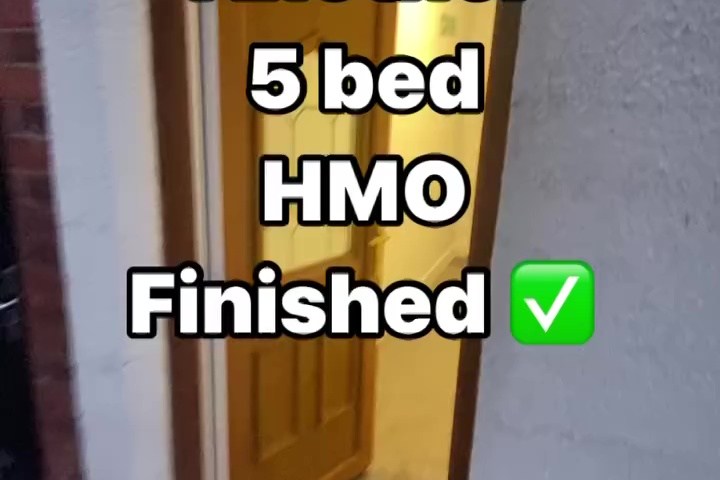Landlords providing asylum accommodation are flaunting their passive “government-backed income” on social media, The Times can reveal.
Owners of houses in multiple occupation (HMOs) — increasingly used to accommodate migrants awaiting decisions on their claims — are sharing tips and tricks on how to profit from the Home Office’s outsourced housing schemes.
Chris Murray, the Labour MP for Edinburgh East & Musselburgh and a member of the home affairs select committee, said it “boiled the blood” to see landlords “creaming profit from the asylum system so brazenly”, while policy experts described the findings as a clear example of “why the system isn’t working as it should”.
Critics warn the model risks raising local tensions, squeezing the private rental market and offering poor long-term value for taxpayers.
One TikTok entrepreneur boasts of having “escaped the 9-5 by owning £7 million” in property, which he controls from Dubai, while a former bed-and-breakfast owner has shared tips on how to make “totally passive” taxpayer-funded income housing “illegal immigrants”.
HMOs, run by contractors such as Serco, Clearsprings and Mears Group, are increasingly being used as longer-term “dispersal accommodation” in local communities, as Labour seeks to reduce the government’s reliance on asylum hotels. As of March, about 66,683 asylum seekers were living in dispersal accommodation across the UK.
Serco has been actively recruiting property owners through a “calling all landlords” advertising campaign, offering multiyear leases that cover maintenance and bills, in effect providing a hands-free rental income stream.
As new renter protection laws tighten rules for private landlords, some investors are promoting asylum accommodation as a more profitable, hassle-free alternative to the open market.
Luigi Newton claims to own 31 properties in the UK, mostly around Nottinghamshire, seven of which he leases to Serco to house asylum seekers. He told The Times he felt “that the housing system is favoured towards tenants [who] abuse the system”, meaning that “landlords are being forced to find other solutions”.
The 30-year-old entrepreneur, who runs his business from Dubai and has spoken about the benefits of living tax free, uses TikTok to encourage others to follow his model. “Most of my properties are social housing HMOs, so they’re fully passive — no late-night tenant calls, no endless viewings, no hassle. Just government-backed income dropping in every month,” he posted, alongside a photo of himself by a pool at sunset.

In another video, entitled “My honest experience with Serco”, he said the contractor “pays quite well”, slightly below market rates, but still more profitable than standard rentals, especially in areas “where it’s cheap properties”.

Paul Carroll, who claims to have completed 50 HMO conversions, told a YouTube show that investors should focus on the social housing market. “The ones I work with is like illegal immigrants,” he said. Describing a recently bought property in Chorley, Lancashire, Carroll said he was looking at £1,100 a month in “totally passive income”. He added: “That’ll just be gone for seven years. That’s the last I will see of that house. And I’ll just take that money again and just keep on doing it.”

Paul Carroll said he would receive £1,000 a month in passive income from his house in Chorley
Another property developer stated that the Home Office backed-deals “could easily be considered equivalent to UK government bonds”.
Residents in some areas have voiced growing frustration, arguing that poorer communities are being forced to shoulder a disproportionate share of temporary accommodation. Local councils have come under pressure to tighten rules on HMO expansion using section 4 powers.
The Times visited two of Newton’s properties housing asylum seekers in the village of Somercotes, Derbyshire. Neighbours raised concerns about recent fighting by occupants on the street and said that there was a high turnover of men living in the adjoining houses.

Carroll has told investors to focus on social housing
Speaking anonymously, one woman said it was unfair that families were not able to use the homes, which are some of the biggest in the village. “I’m not being funny, but local families could use that. There’s people with lots of kids who could have that,” she said. “It doesn’t really seem fair him [Newton] getting rich out of this.”
Newton disagreed that the area was “suitable for families”, claiming both his houses had been broken into before he leased them to social housing providers. “It struggles with serious social issues and high levels of crime,” he said. “Those two properties will never make me rich, not at all.”
• Housing asylum seekers in hotels is unsustainable
The landlord, who co-runs a mentoring business, the High Performance Academy, for “like-minded entrepreneurs to level up their mind”, has previously said he is “proud” to be “helping people that really need housing”.
He added: “I’ve caught some flak online, a lot of racist people online but, for me, I think it’s actually a good thing.”
Marley Morris, associate director for migration, trade and communities at the Institute for Public Policy Research (IPPR), said the cases of landlords profiting from asylum contracts showed why “major reform” was needed.
“It’s really frustrating,” he said. “The government is spending huge amounts of money because of the backlog and the way the asylum accommodation system works. But there are ways of running it that could actually expand the stock of social housing in the long run and have wider benefits for the community.”
The think tank has proposed replacing the system with a model that gives capital subsidies to councils and housing associations, allowing them to buy housing stock that could later be rented to the Home Office for temporary asylum use, and eventually added to the wider pool of social housing.
Bryant, the housebuilder, said the current model was “disastrous for the taxpayer”, adding: “That these public contracts, set up by the Tory government, have been so mishandled [it] is a scandal: the current system is bad for public confidence in the asylum system, bad for asylum seekers themselves and bad for the taxpayer. The new government should call them in at the first opportunity.”
Serco and Mears said all accommodation met government standards and was leased at local housing rates. Mears said: “We work directly with landlords and do not pay premiums or work with third parties promoting the need for housing supply.”
The Home Office said: “The government inherited a broken asylum system, with tens of thousands stuck in hotels. In the last year, we have cut nearly £1 billion in hotel spending. We are now committed to closing all asylum hotels by the end of this parliament and are exploring large Ministry of Defence sites.”
Clearsprings and Carroll were contacted for comment.
